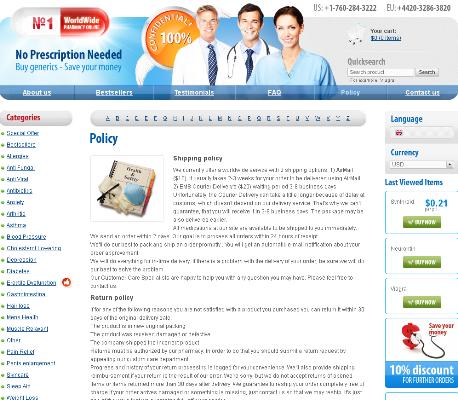Buy Apixaban Online
Managing Apixaban Side Effects: Tips and Advice
Common Side Effects of Apixaban
When you begin taking apixaban, you might notice some common side effects that, while typically mild, can definitely impact your day-to-day life. One of the most frequent issues reported by users is easy bruising, even with minor bumps that usually wouldn't leave a mark. Alongside this, some patients experience slight bleeding from their gums or nose, which may seem alarming but is usually not severe.
| Side Effect | Description |
|---|---|
| Bruising | Bruises may occur more easily than usual, even with minor impacts. |
| Gum Bleeding | Mild bleeding from the gums can happen, particularly when brushing teeth. |
| Nosebleeds | Occasional nosebleeds might be more frequent than before starting the medication. |
More uncommon side effects include nausea and dizziness, which are generally mild but can become bothersome if they persist. Being aware of these side effects allows you to manage them proactively. To ensure safe and effective use of apixaban, it's crucial to discuss any persistent or worsening symptoms with your healthcare provider.
Recognizing Serious Side Effects Promptly

It's crucial to be aware of the more serious side effects of apixaban, such as severe bleeding, unusual pain, or signs of an allergic reaction like swelling of the face, lips, or tongue. If any of these symptoms occur, seek medical attention immediately. Early recognition and prompt action are vital in preventing complications.
Patients using apixaban should periodically review their condition with their healthcare provider. This helps ensure that any adverse events or changes are monitored. Remember, some side effects might not be apparent initially but can develop over time.
Untill you can consult your healthcare provider, it's advisable to keep a log of any unusual symptoms or discomfort, no matter how insignificant they may seem. This detailed record can assist your healthcare provider in adjusting your treatment plan as needed, ensuring the safest possible outcome while using apixaban.
Diet and Lifestyle Adjustments for Safety
Optimizing your diet and lifestyle can significantly help manage the minor side effects of apixaban. Maintaining a balanced diet rich in fruits, vegetables, and lean proteins is crucial. Avoiding foods high in vitamin K, such as spinach and kale, might be beneficial, but consult your healthcare provider before making major changes. This is because vitamin K can interfere with blood thinning processes which could affect the efficacy of apixaban. In addition, limiting alcohol intake and quitting smoking can further enhance your overall health and reduce risks.
Regular excercise is also a key component, but be cautious with activities that carry a high risk of injury. Light to moderate activities, such as walking or swimming, are generally excellent choices. Stay hydrated and maintain a regular sleep schedule to support your immune system and bodily functions. Stress management techniques, like breathing exercises or yoga, can complement your overall well-being. Remember, each individual's needs are unique, so always seek personalized advice from your healthcare provider to ensure all adjustments are safe and appropriate.
online pharmacy canada
Managing Bruising and Bleeding Risks

Using Apixaban can put individuals at a higher risk of bruising and bleeding. To minimize these risks, it's important to avoid engaging in activities with a high chance of injury. Simple actions like using a soft toothbrush and an electric razor can significantly reduce the risk of cuts and bruises. Additionally, applying ice packs to new bruises and practicing gentle pressure on minor bleeding can help manage occurrences when they arise.
Be mindful of the medications and supplements you're taking, as some, like aspirin and ibuprofen, can exacerbate bleeding issues. It's crucial to consult your healthcare provider before adding any new medications or supplements to your regimen. Regular monitoring and proactive managment of your health can make a notable difference in safely using Apixaban.
Always keep open communication with your healthcare provider. They can help you tailor your lifestyle and diet to better suit your needs while on Apixaban, and ensure your safety by providing personalized advice. This proactivity ensures that any potential complications are addressed before they become serious. Staying diligent and informed about your condition is key to managing the side effects effectively.
online pharmacy canada
When to Contact Your Healthcare Provider
If you're using apixaban and experience symptoms like unexplained bruising, prolonged bleeding from cuts, or unusual pain and swelling, it's crucial to act quickly. These issues can indicate a serious condition that needs immediate attention. Additionally, if you notice persistent nosebleeds, bleeding gums, or severe headaches, don’t hesitate to contact your healthcare provider. Always keep an eye out for signs such as blood in your urine or stool.
| Symptoms | Action Required |
|---|---|
| Unexplained bruising | Contact healthcare provider |
| Prolonged bleeding | Seek medical assistance |
| Unusual pain/swelling | Get professional advice |
These symptoms might be subtle or appear gradually, so it’s always better to be safe and proactive. Your well-being is the priority, and timely medical intervention can make a significant difference.
Staying Informed and Updated on Apixaban
canadian pharmacy online
In today’s fast-paced world, staying updated on medications like Apixaban is crucial for effective managment of your health. Continuous learning about Apixaban can be done through reliable sources like medical journals, healthcare websites, and updates from your healthcare provider. Teh ever-evolving nature of medical research means new side effects or interactions may be discovered, and staying knowledgeable is your first line of defense.
Engage with online patient communities or forums where you can share experiences and get new insights. These platforms can be invaluable for advice and emotional support. Also, subscribing to newsletters from trusted health organizations can keep you informed of the latest findings and recommendations for Apixaban use.
Independant health apps can also help track your medication and remind you of medical appointments. By keeping abreast of current information, you are empowering yourself to make informed decisions about your treatment and overall well-being.

